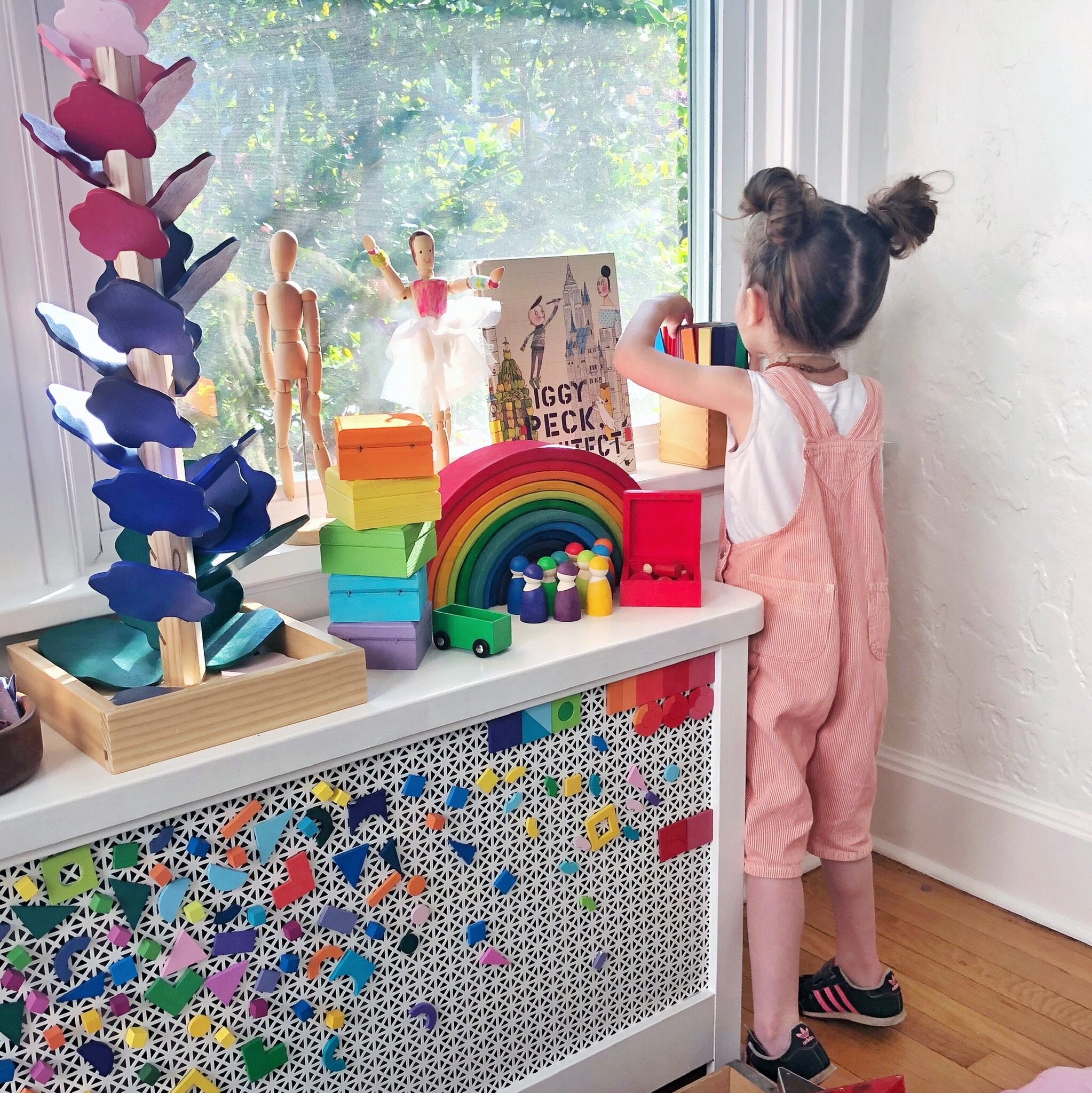3 Simple Ways to Fit Play into Your Child’s Hectic Schedule
/In today's fast-paced world, ensuring that our children have ample time to play can be challenging. But, as you already know, play is crucial for their development (and for your sanity as a parent!)
Here are three easy strategies to incorporate more independent playtime into your child's daily routine:
1. Make Play Accessible Everywhere
Don’t limit play to just the playroom. Make it easy for them to start playing where they are. Place a beloved toy on the kitchen floor, set up a puzzle on the coffee table, or keep some crayons and paper on the kitchen counter. This approach encourages spontaneous play, making it easier for your child to engage in play no matter where they are in the house. It’s a simple yet effective way to integrate play into their daily life. Low effort on your end, but very high reward! They’ll love discovering an invitation to color at the counter while you make dinner.
2. The Magic of a Play Pouch
This is a lifesaver for on-the-go families. Keep a small bag filled with portable play items like mini figurines, crayons, paper, post-it notes, and stickers. You can easily grab this 'play pouch' when you're heading out. (We keep one in the diaper bag and one in the car!) It's perfect for those moments when you’re waiting in the pickup line, sitting at a restaurant, or watching an older sibling’s sports practice.
3. Schedule Play Like Any Other Activity
We often schedule lessons, tutoring, and social events, so why not schedule play? Take a look at your child’s weekly schedule and carve out dedicated time for play. Remember, play is just as important, if not more, than structured activities. By setting aside specific times for play, you’re sending a message that it’s a valuable and essential part of your child’s day. Plus, the more practice playing, the better they’ll get at playing independently, giving you back more time for yourself.
Play isn't just a way to pass the time; it's a vital aspect of childhood development. By making play accessible, keeping playthings on hand for on-the-go, and treating playtime with the same importance as other scheduled activities, you’ll have them playing in no time!








Rescuing them from discomfort also robs them of resilience.